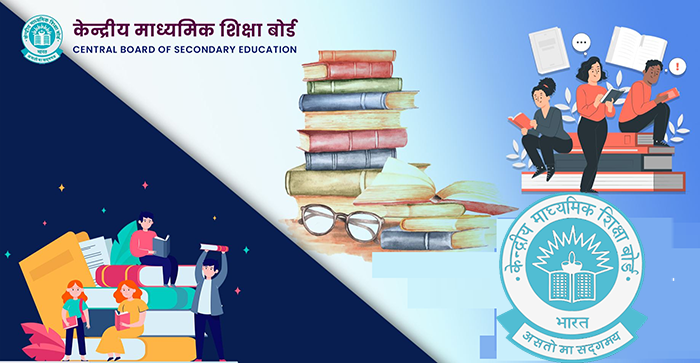
The Central Board of Secondary Education (CBSE) is the national level board of education in India for public and private schools, controlled and managed by the Union Government of India. CBSE affiliates all Kendriya Vidyalayas, all Jawahar Navodaya Vidyalayas, private schools and most of the schools approved by central government of India. CBSE conducts the final examinations for Class 10 and Class 12 every year in the month of March.
Central Board of Secondary Education (CBSE) Eligibility Criteria
The eligibility criteria to appear for the CBSE examination is as follows:
1. Students must be currently enrolled in a CBSE affiliated school.
2. Students must be between the ages of 16 and 18.
3. Students must have completed the necessary course of study from a CBSE affiliated school.
4. Students must have a minimum of 75% attendance in their current academic session.
5. Students must have secured a minimum of 50% marks in their previous academic session.
Central Board of Secondary Education (CBSE) Colleges In India
Following are some of the top CBSE Colleges in India:
1. Mayo College, Ajmer, Rajasthan
2. The Doon School, Dehradun, Uttarakhand
3. The Scindia School, Gwalior, Madhya Pradesh
4. Welham Boys’ School, Dehradun, Uttarakhand
5. La Martiniere, Lucknow, Uttar Pradesh
6. St. Joseph’s College, Nainital, Uttarakhand
7. St. Xavier’s College, Kolkata, West Bengal
8. The Bishop’s School, Pune, Maharashtra
9. St. Columba’s School, Delhi
10. Modern School, New Delhi
Central Board of Secondary Education (CBSE) List of Stream
The Central Board of Secondary Education (CBSE) offers a wide variety of streams for students to choose from at both the secondary and senior secondary levels.
1. Science Stream – This stream includes Physics, Chemistry, Biology, Mathematics and Computer Science.
2. Commerce Stream – This stream includes Economics, Business Studies, Accountancy and Mathematics.
3. Humanities Stream – This stream includes History, Geography, Political Science, Sociology, Psychology, Home Science, Physical Education and Fine Arts.
4. Vocational Stream – This stream includes Vocational Education such as Retail, IT, Automobile, Media, Logistics, Tourism and Hospitality, Agriculture and Textile Design.
5. Information Technology Stream – This stream includes Information Technology, Computer Science and Application and Multimedia and Web Technology.
Central Board of Secondary Education (CBSE) Syllabus
The Central Board of Secondary Education (CBSE) syllabus is a comprehensive learning program designed to provide students with a strong academic foundation in a range of subjects. It is designed to provide students with the skills and knowledge they need to succeed in school and beyond.
The CBSE syllabus covers a wide range of subject areas, including English, Mathematics, Science, Social Studies, and Arts & Humanities. It also includes language and communication skills, physical education, and life skills. The syllabus is designed to build a strong foundation for students in these core areas and to help them to develop the skills they need to be successful in their future studies and career.
The CBSE syllabus is divided into three levels: Primary, Secondary, and Senior Secondary. Each level has its own set of curriculum objectives and learning outcomes. The syllabus is regularly updated to keep up with the changing educational landscape and the changing needs of students.



